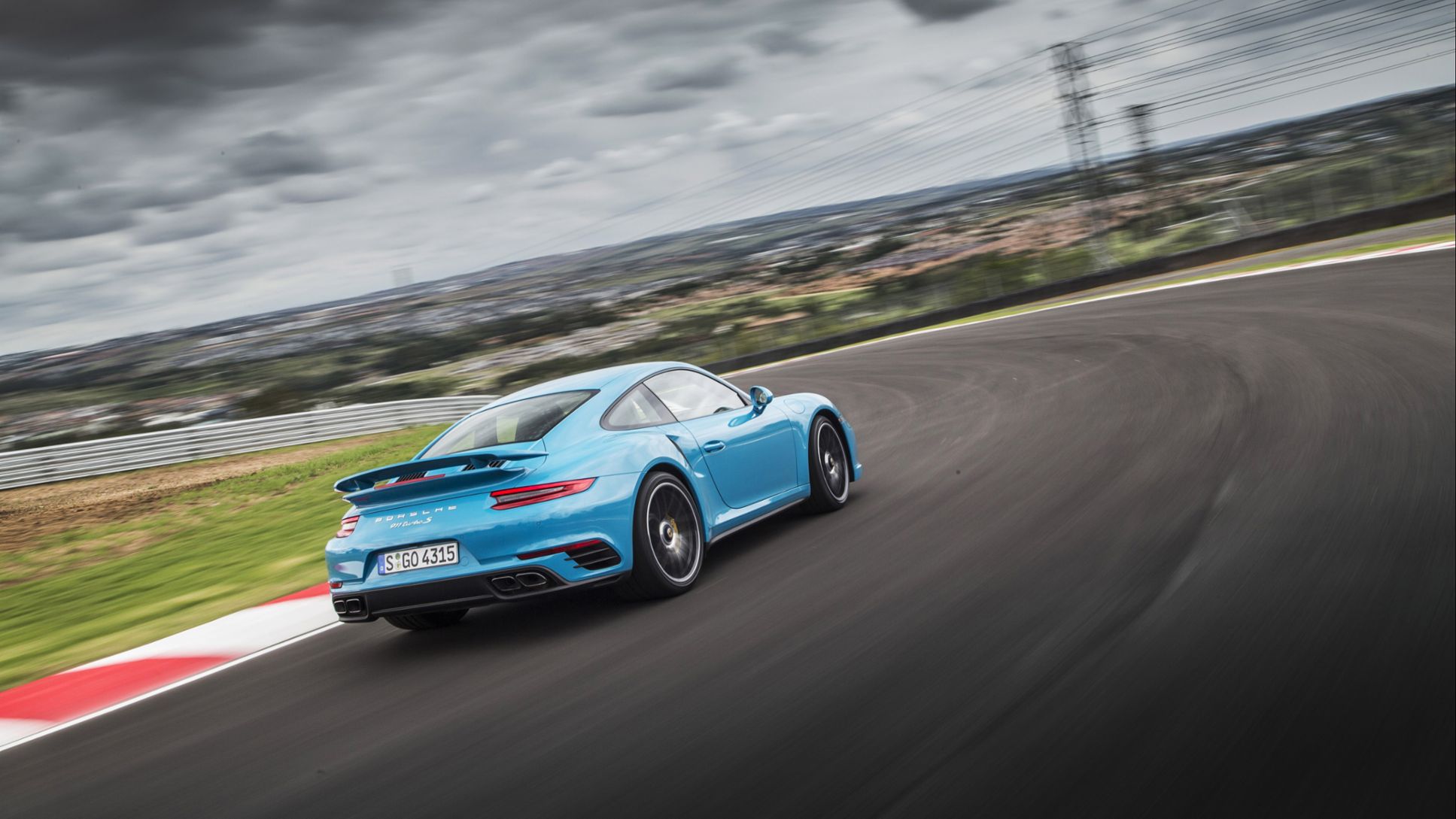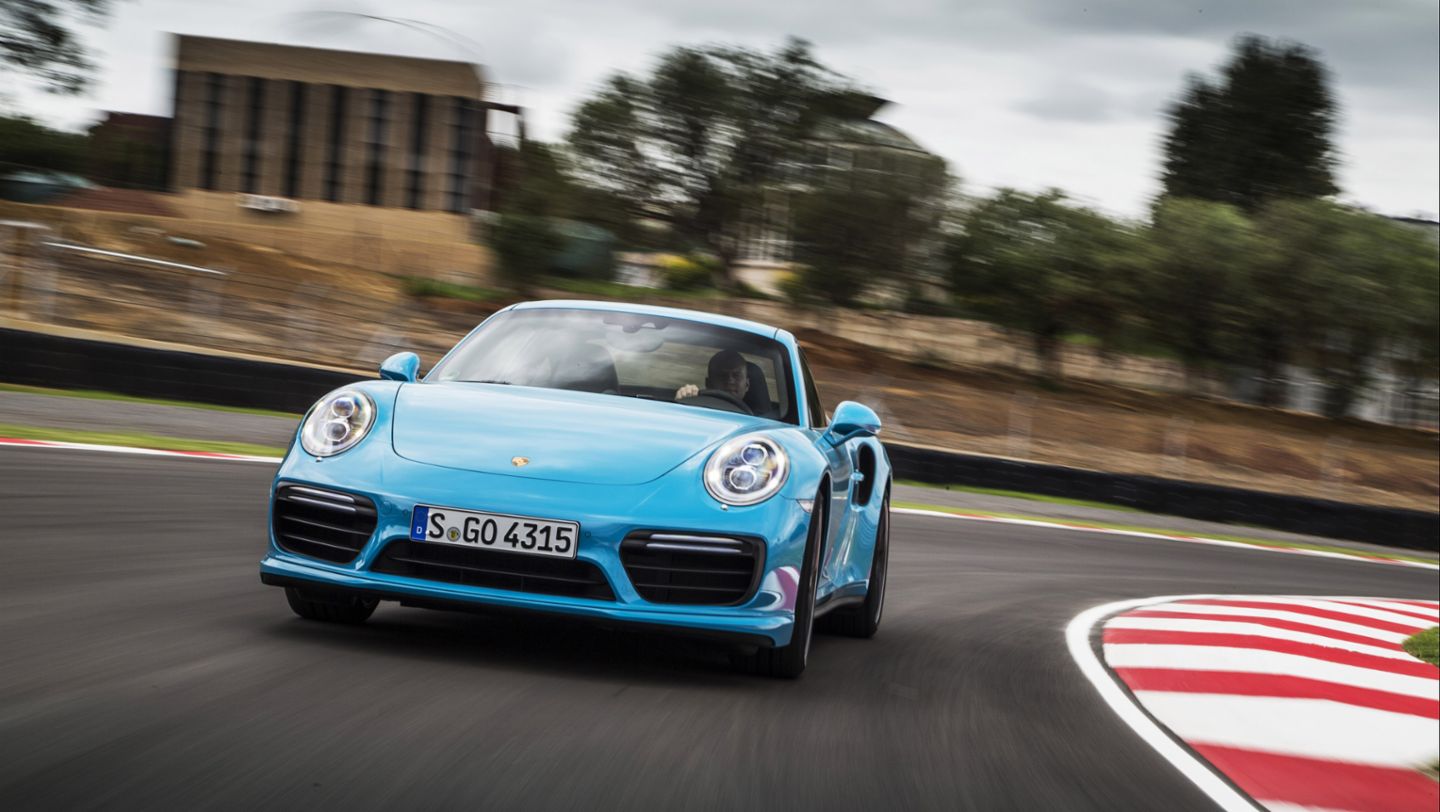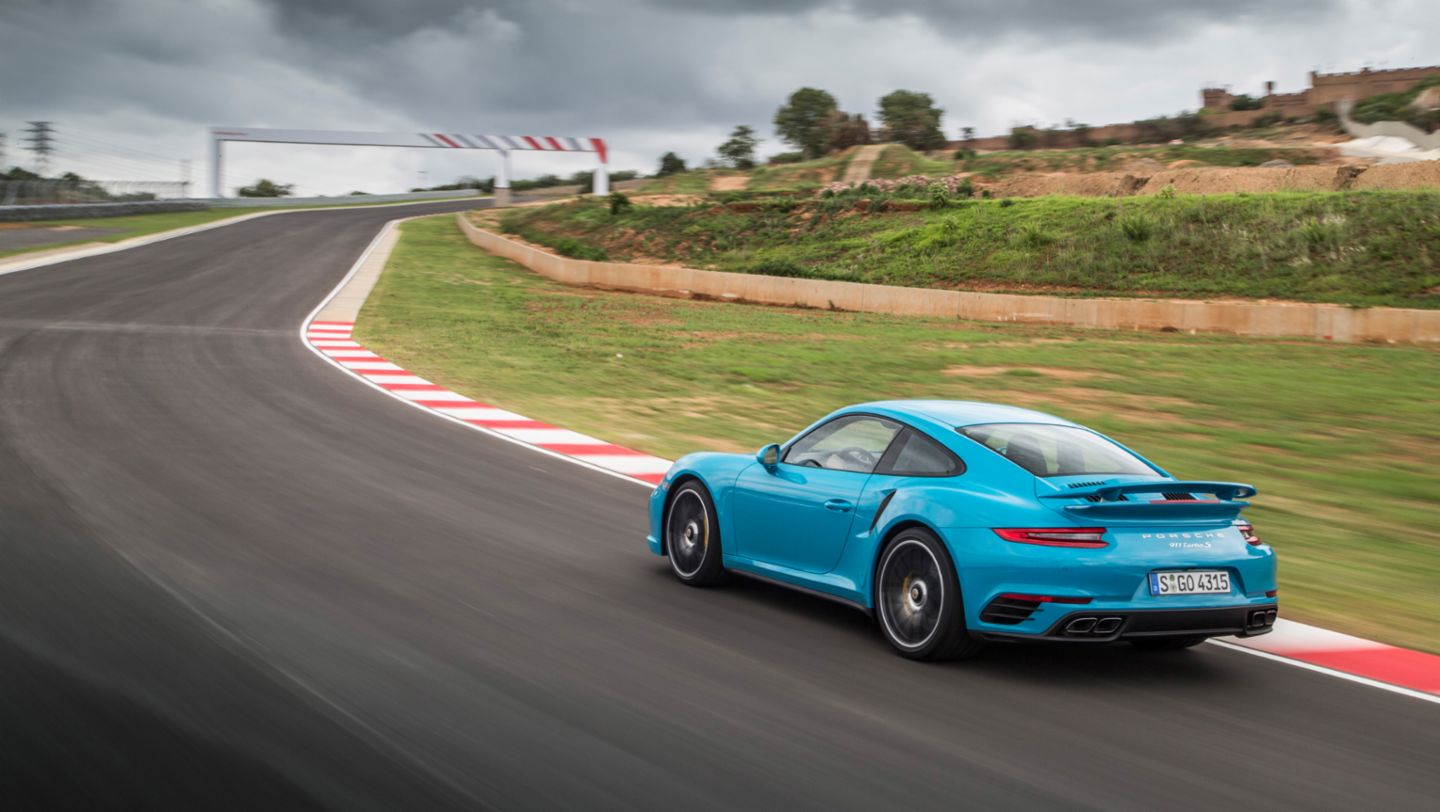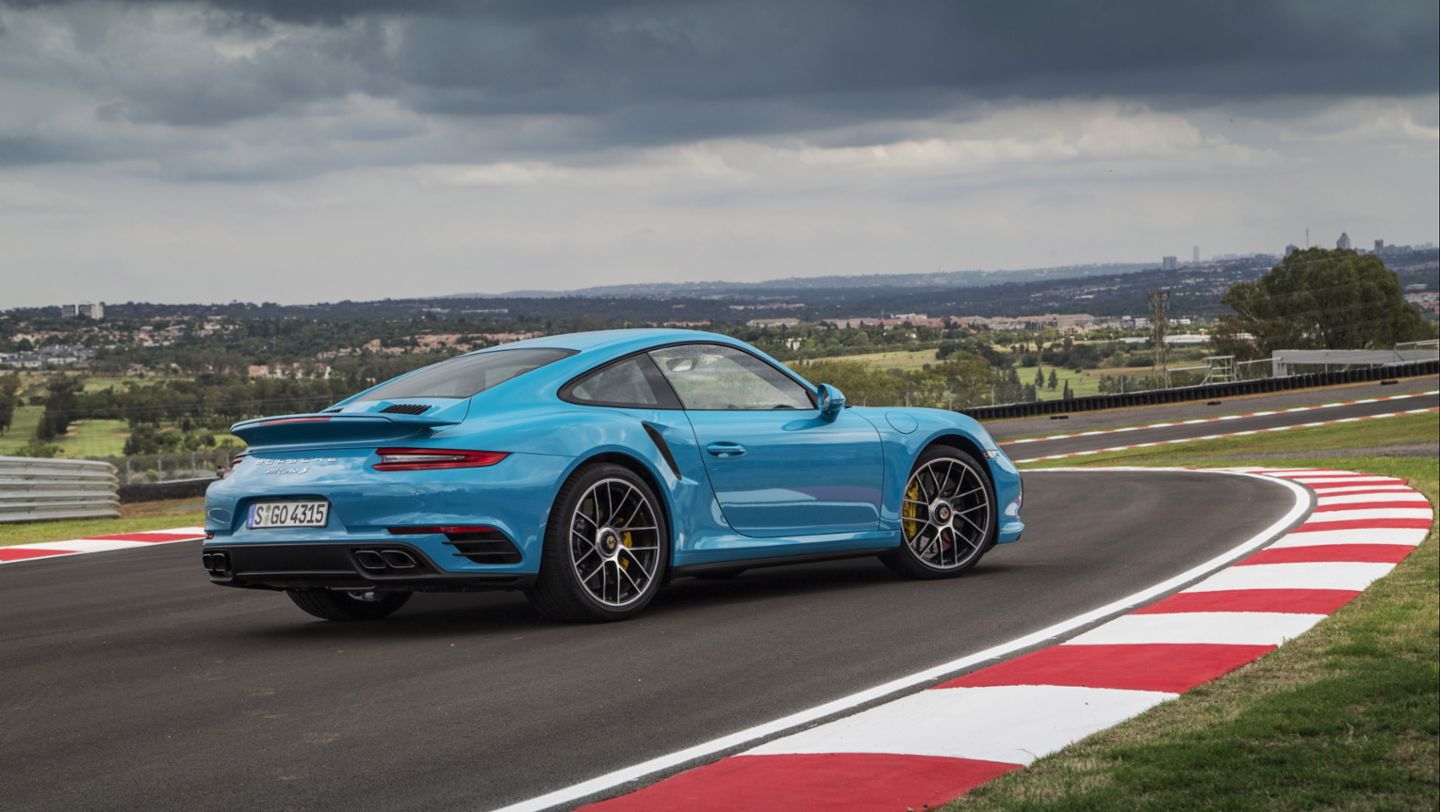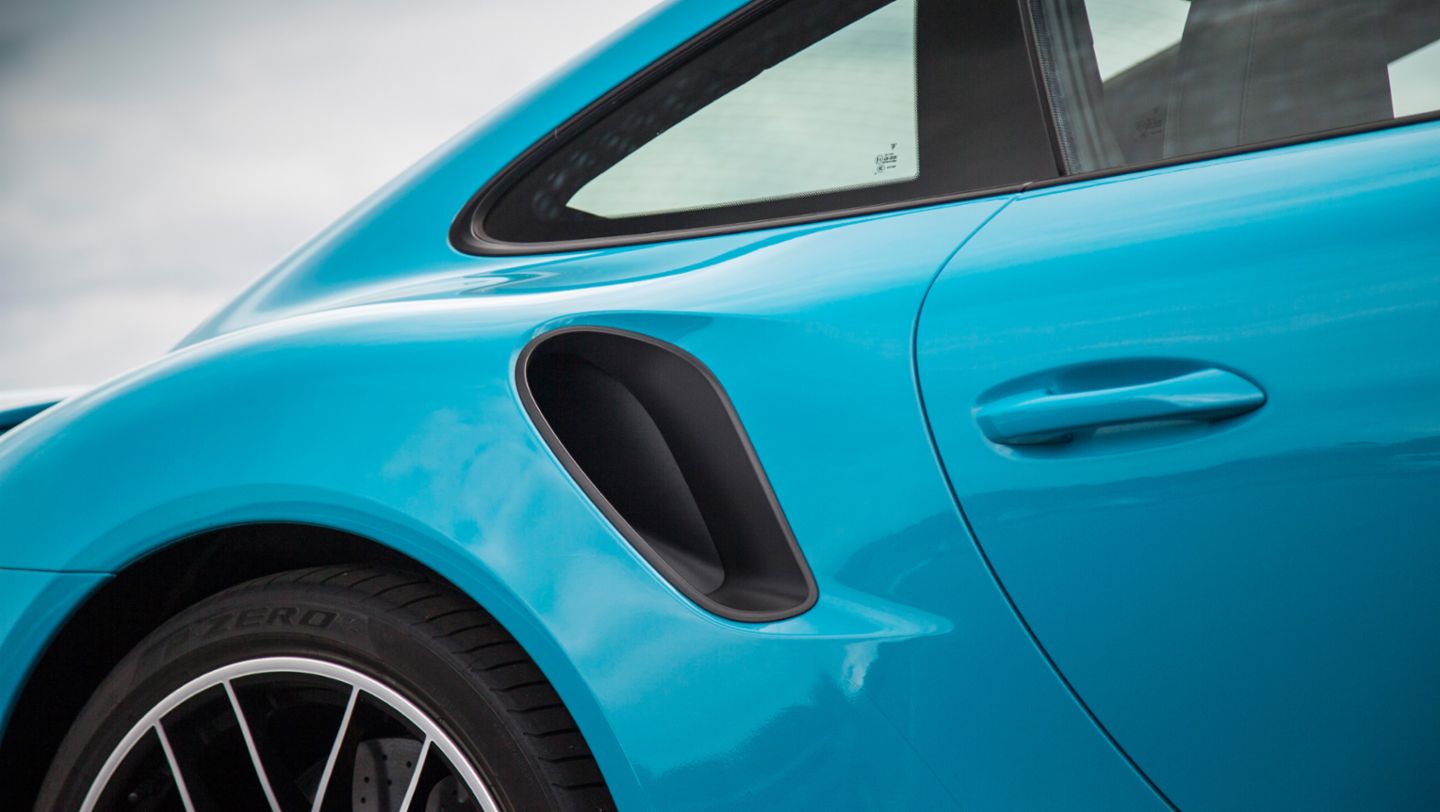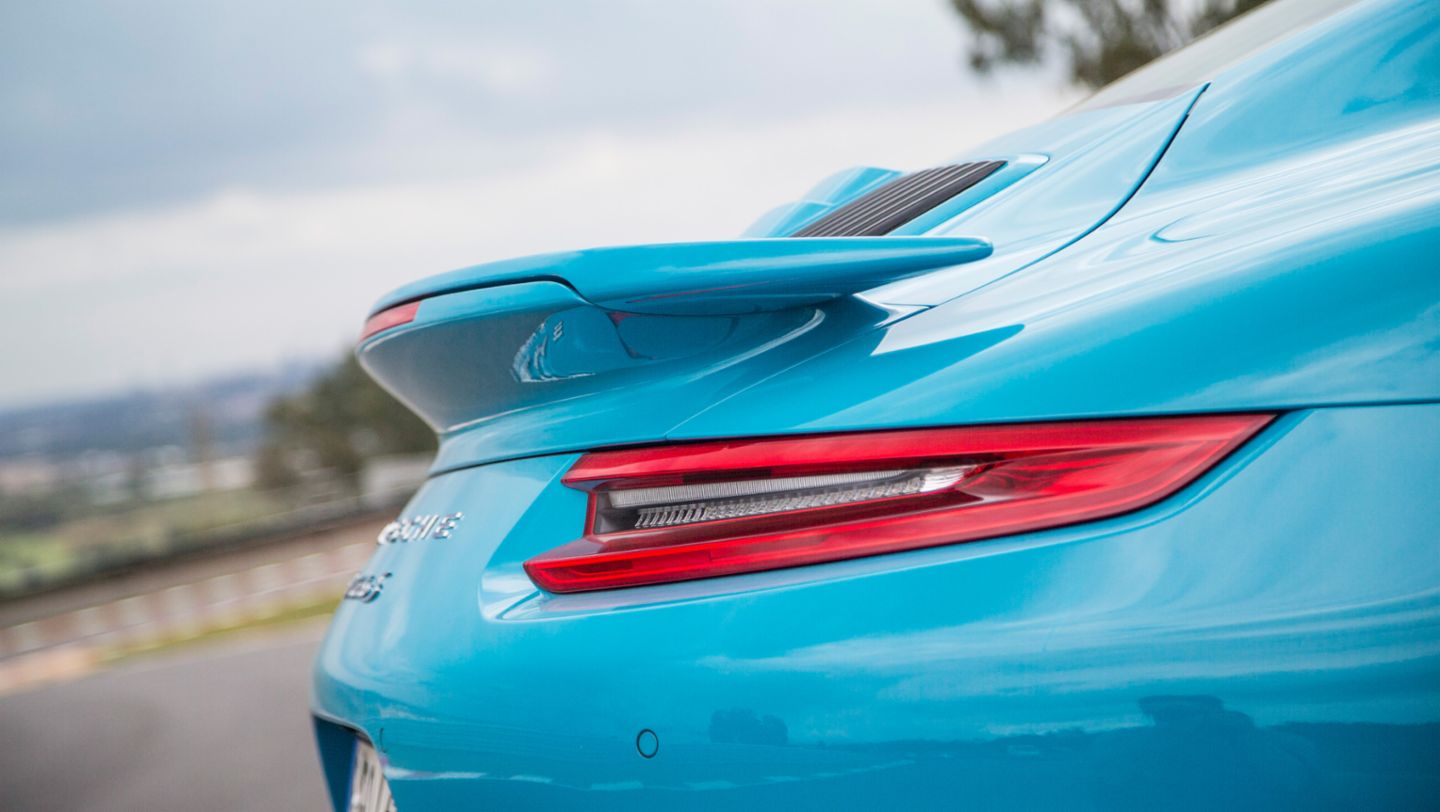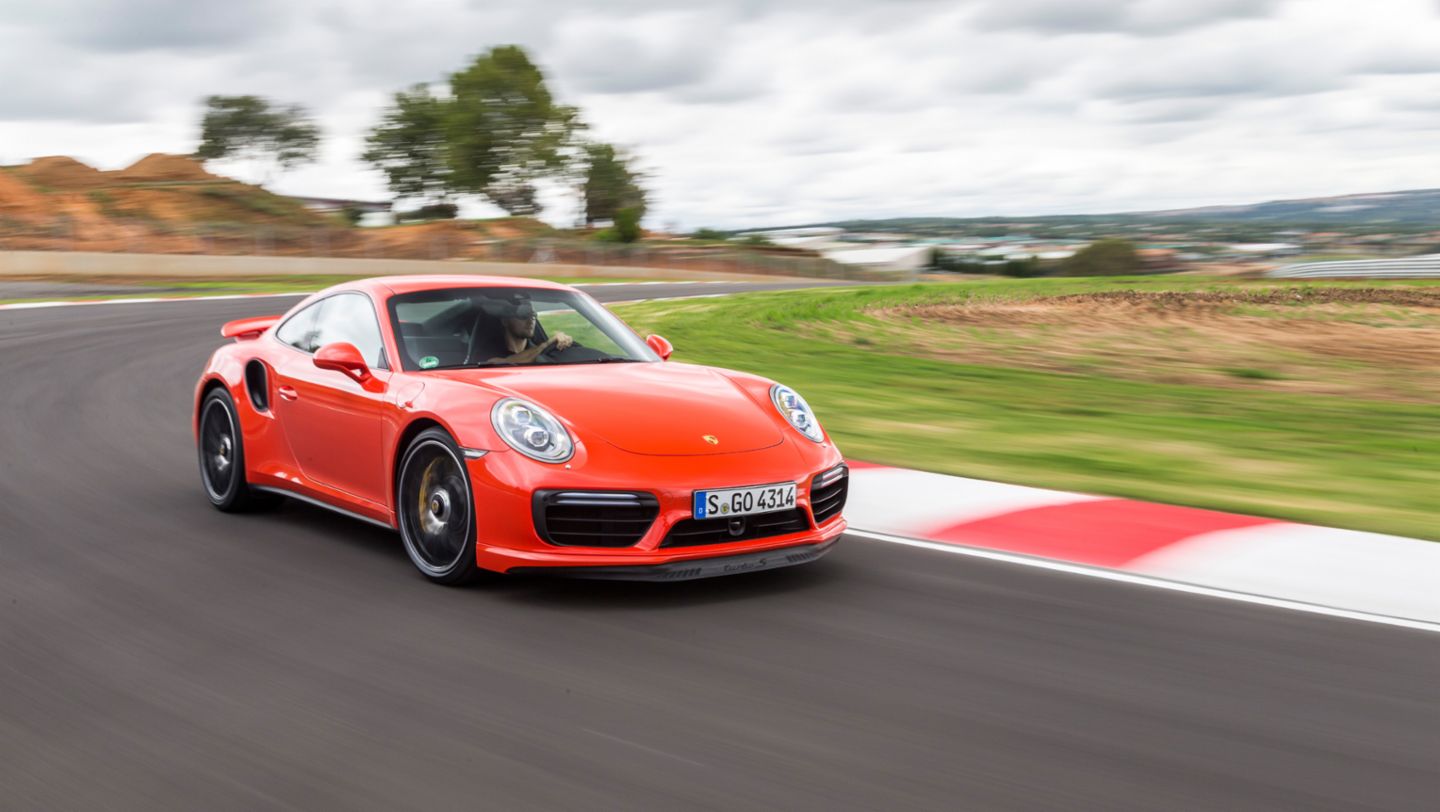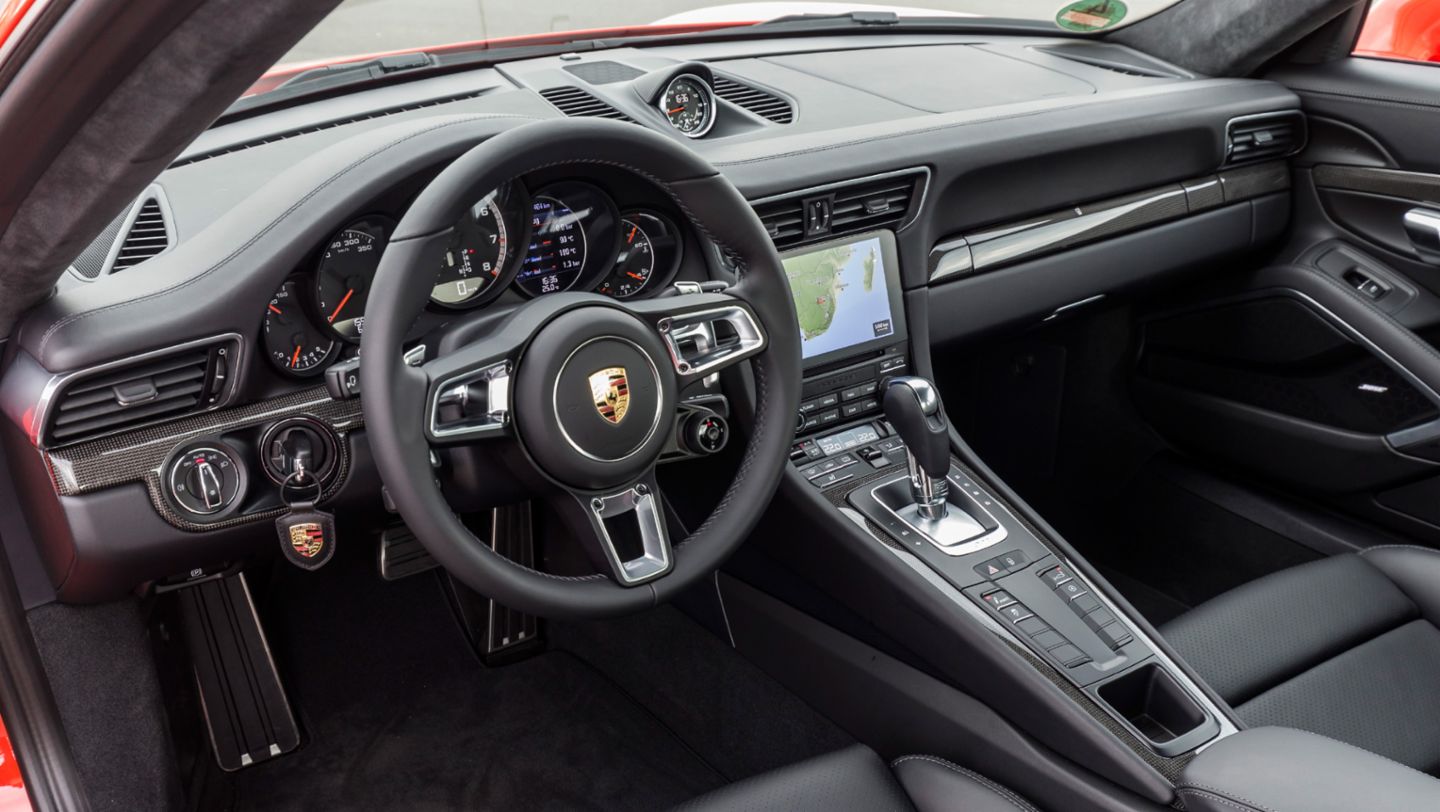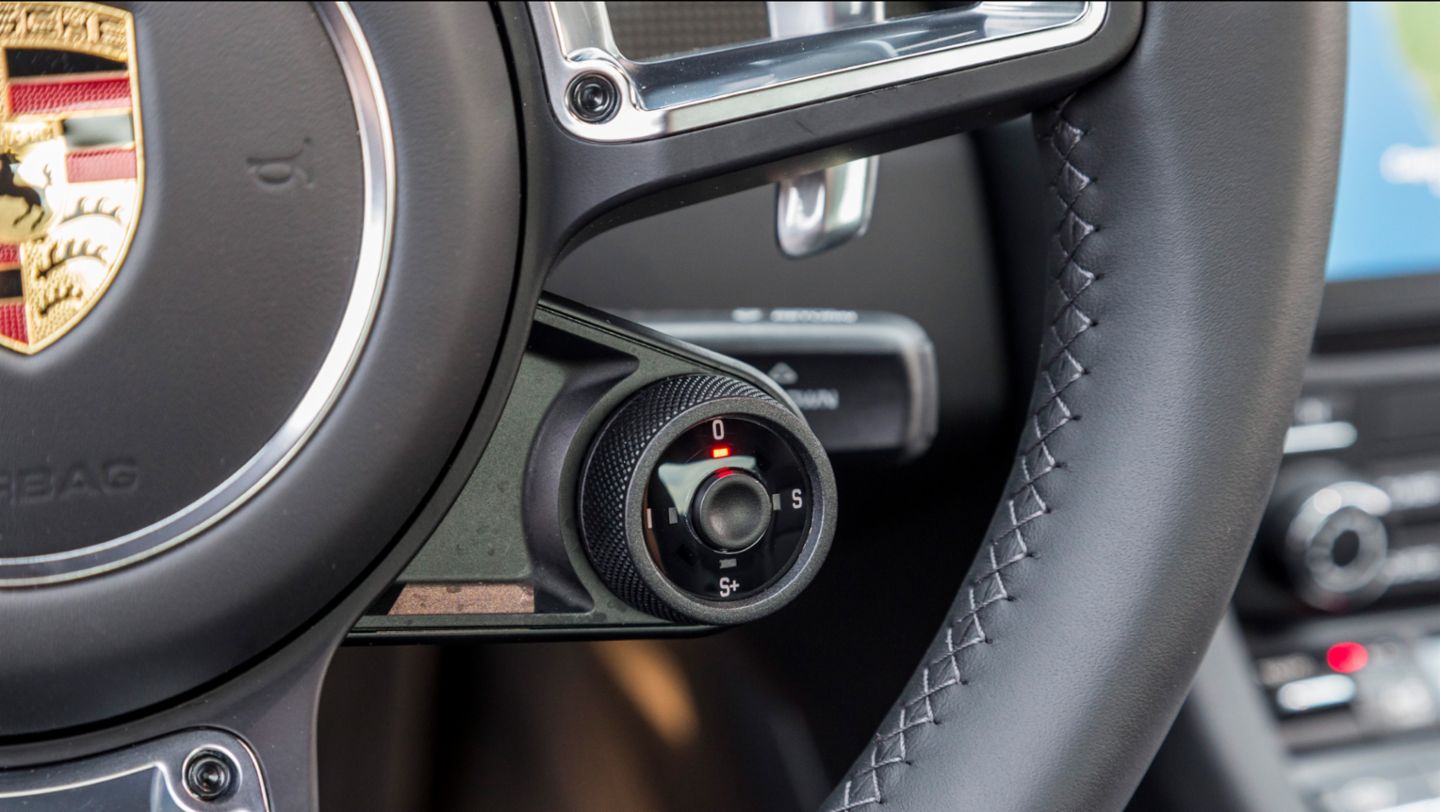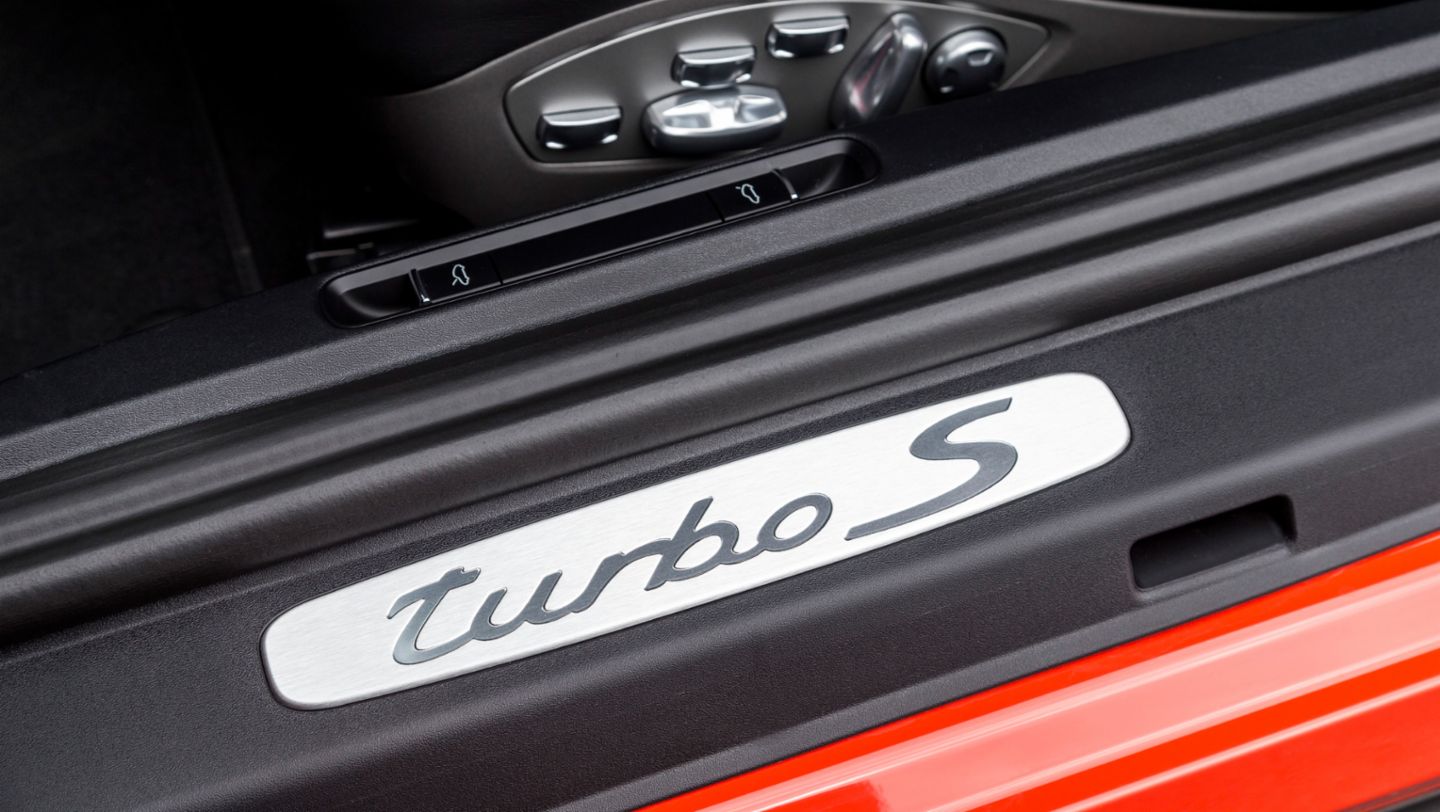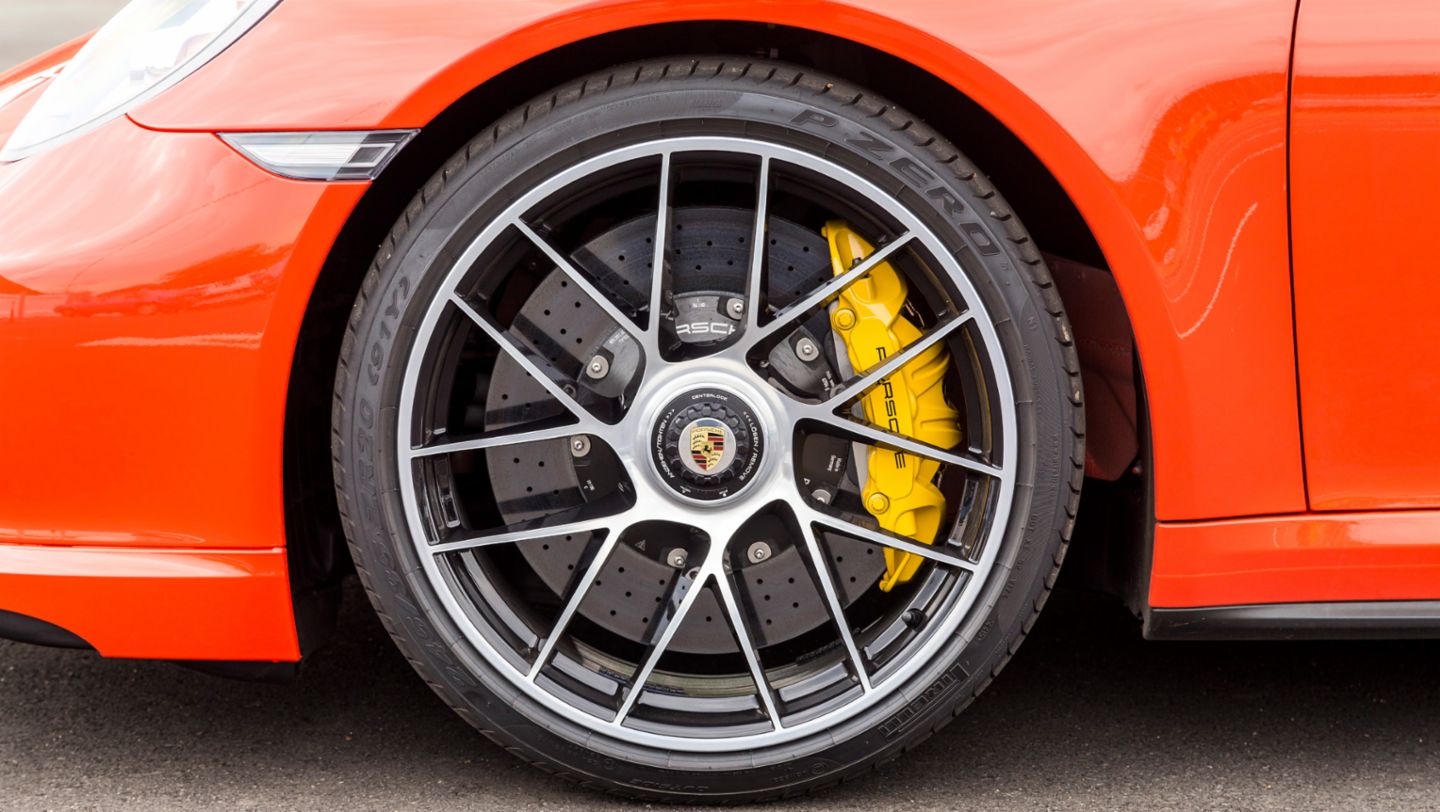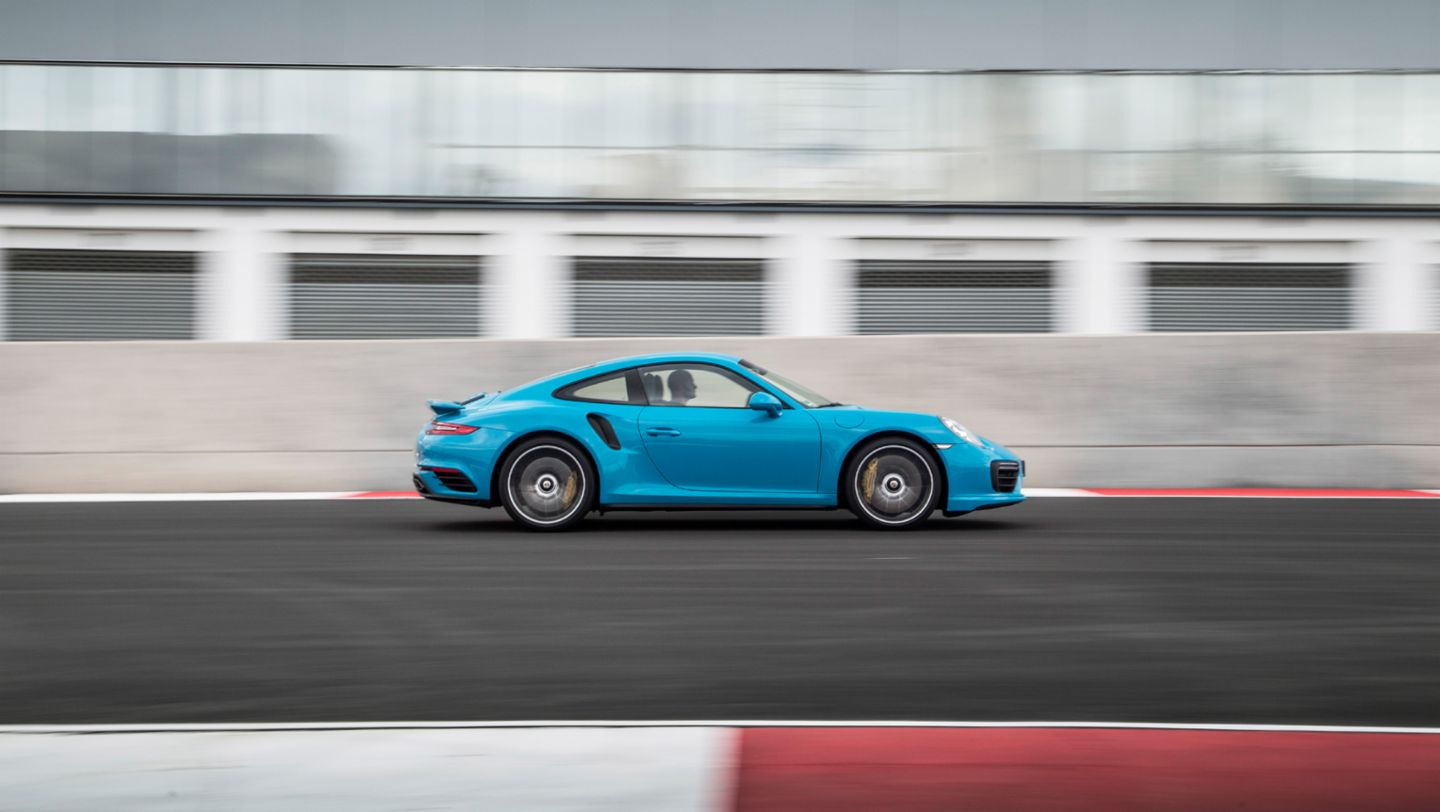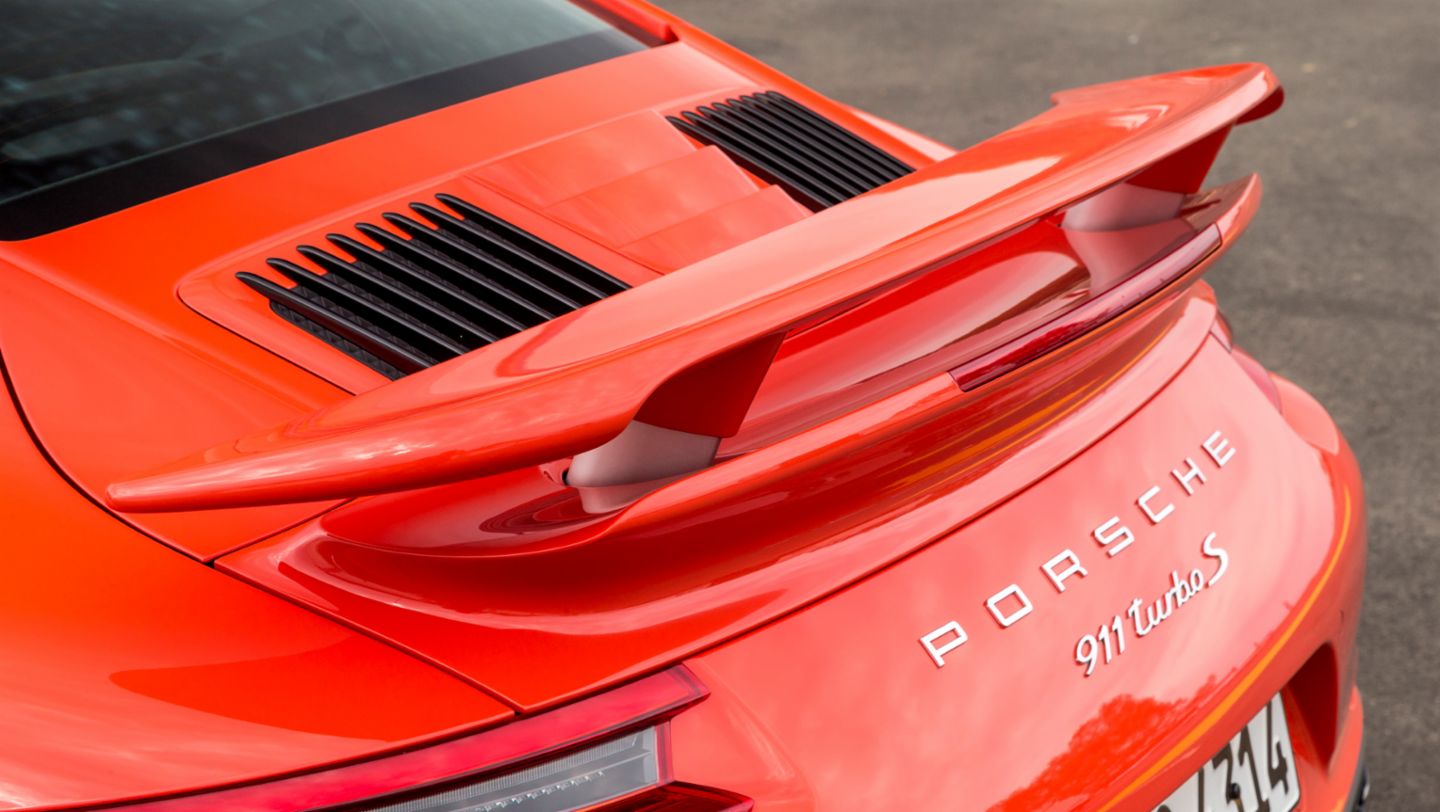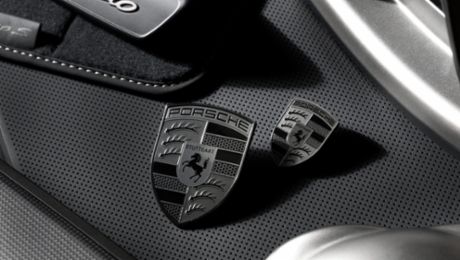More power, a sharper design and improved equipment – the new top model in the 911 series leaves nothing to be desired. With output of 397 kW (540 hp, combined fuel consumption 9.1 l/100 km, CO2 emissions 212 g/km) in the 911 Turbo and 427 kW (580 hp, combined fuel consumption 9.1 l/100 km, CO2 emissions 212 g/km) in the 911 Turbo S both bi-turbo engines now have an extra 15 kW (20 hp) of power. The power boost enables even faster sprints and higher speeds: in the coupé version the vehicle now accelerates from zero to 100 km/h in 3.0 seconds, while the Turbo S needs just 2.9 seconds – each car is 0.2 seconds faster than the predecessor. The 911 Turbo S is therefore the first 911 to have a 2 in front of the decimal point with regard to the acceleration time.
In view of all this sportiness the question of where to best present the car is easy to answer: the racetrack. This is why Porsche invited selected media representatives to the former Kyalami Formula 1 circuit in South Africa.
The newly modernised track offers the best prerequisites for testing the latest top version of the classic sports car from Zuffenhausen. Where motorsport legends such as Jackie Stewart, Niki Lauda or Alain Prost did laps in the 1970s and 1980s, the journalists were now able to put the new Turbo through its paces. You can read some of their résumés here:
“Porsche 911 Turbo S – ultimate performance meets unbeatable everyday appeal.”
“If we worried that the Turbo might struggle to maintain its own character in the face of the newly turbocharged Carrera models at Porsche, we needn’t have. The Turbo, and in particular, the Turbo S, is at the top of its game. If you want a sub-supercar that’ll take abuse 365 days a year, it chooses itself.”
www.carmagazine.co.uk
“There's almost nothing this car can't do. Wanna go 200 mph on the autobahn? The S will raise you by 5 mph, making it the first Turbo to enter the twos. Yet it still has seats for four (kind of). Want to somnambulate to work the morning after a heavy night? The Turbo can do that, too, blending its seven ratios with unobtrusive subtlety.”
“The crowning achievement is that the 911 Turbo S feels every bit at home on the road as it does at the track. Yes, there is some surface sensitivity on the low-profile rubber, but it rides exceptionally well in all but the firmest of its damper settings. And the added torque loading sometimes causes the gearbox to jolt in constant stop-start traffic. Otherwise, there’s little else to fault. The overall ease of operation and accessibility of its performance is astonishing.”
Consumption data
911 Turbo: Combined fuel consumption 9.1 l/100 km, CO2 emissions 212 g/km
911 Turbo Cabriolet: Combined fuel consumption 9.3 l/100 km, CO2 emissions 216 g/km
911 Turbo S: Combined fuel consumption 9.1 l/100 km, CO2 emissions 212 g/km
911 Turbo S Cabriolet: Combined fuel consumption 9.3 l/100 km; CO2 emissions 216 g/km
